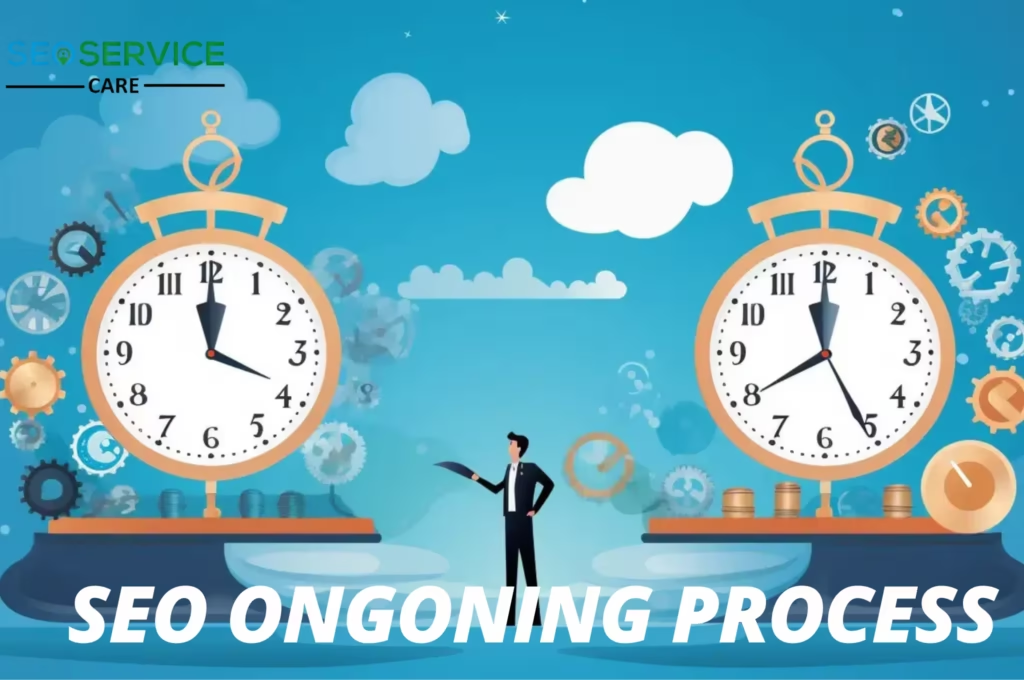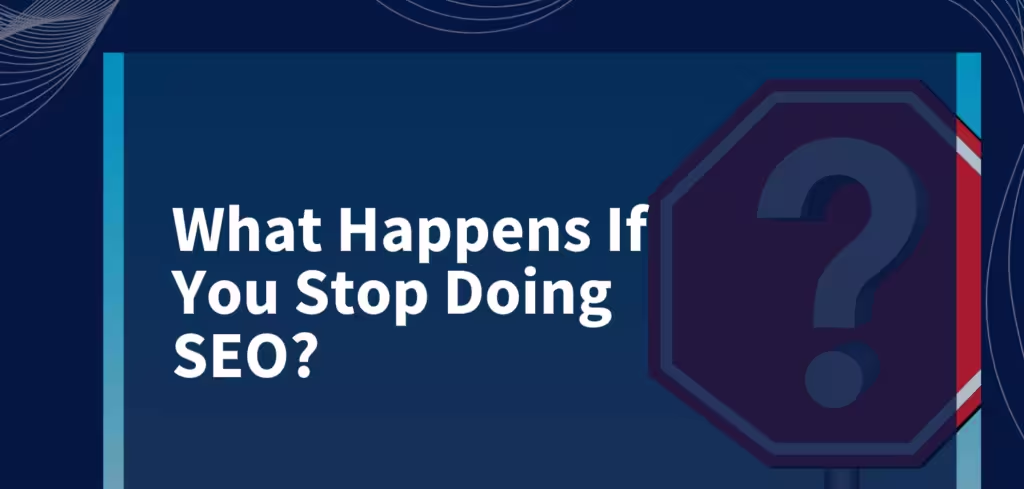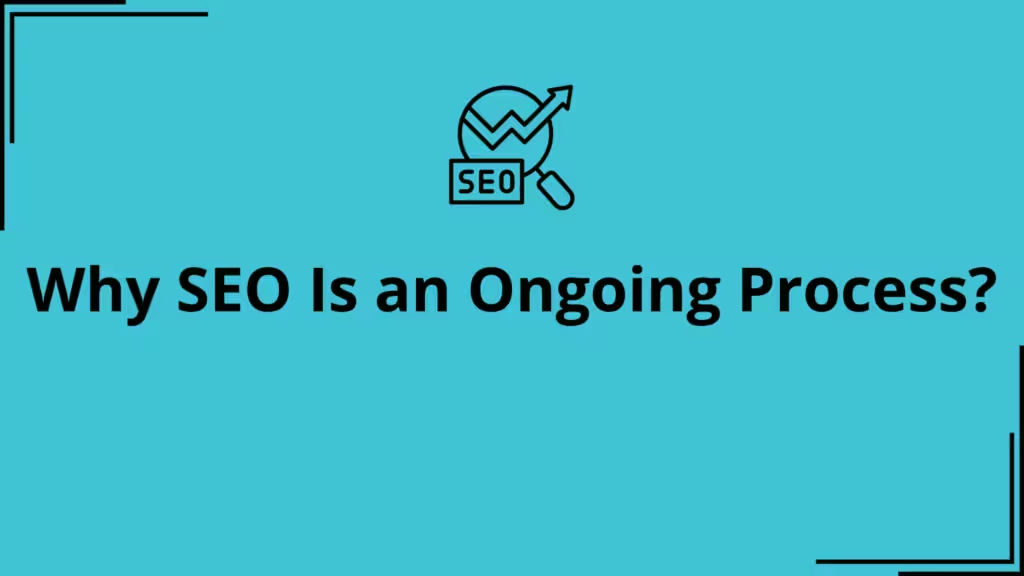When the internet was first introduced to the public, creating a website for your business was seen as a relatively straightforward ongoing process. Companies simply hired web designers to craft an attractive online presence, and with that, they were done. Their website would serve as a virtual business card, accessible for a few years without much intervention. Fast forward to today, and that model has changed dramatically.
Today, websites are not static entities; they are living, breathing components of a company’s digital marketing strategy, constantly evolving to meet the demands of search engines, users, and the marketplace.
At the heart of this digital evolution lies Search Engine Optimization (SEO). In its early stages, SEO was largely a one-time task—insert some keywords, create a few backlinks, and optimize your site for search engines, and that was enough to rank high in Google. But SEO is no longer a “set it and forget it” strategy. It’s now an ongoing process that requires regular attention, updates, and adjustments.
In this article, we’ll explore why SEO is an ongoing process, what happens if you neglect it, and provide tips on how to maintain an effective SEO strategy for long-term success.

What is Ongoing SEO?
Ongoing SEO refers to the continuous process of optimizing and refining your website and content to improve your rankings in search engine results pages (SERPs). This process involves making regular updates to your site, conducting periodic audits, analyzing trends in search behavior, and keeping up with the ever-changing algorithms that search engines use to rank content.
Key areas that require ongoing SEO include:
– User Behavior: Understanding how users interact with your website and adapting to their needs.
– Search Engine Trends: SEO isn’t static, and search engine algorithms are constantly evolving. SEO efforts must keep up with these changes.
– Industry Trends: SEO must adapt to shifts in your industry and consumer behavior to remain relevant.
– Rankings & Traffic Monitoring: Keeping track of your site’s performance and adjusting strategies based on the data.
– Relevancy of Content: Content needs to be fresh, relevant, and updated regularly to avoid becoming outdated.
– Keyword Optimization: Regularly refreshing your keyword strategy to ensure it aligns with current trends and search intent.
Why is SEO an Ongoing Process?

1. Search Engines Constantly Update Their Algorithms
One of the primary reasons SEO is an ongoing process is that search engines like Google are constantly tweaking and updating their algorithms to improve the quality of their search results. These updates can have a significant impact on your website’s rankings. For example, Google’s core algorithm updates can result in changes to how they evaluate the relevance of content, how they prioritize backlinks, or how they interpret user experience signals.
For instance, Google’s mobile-first indexing, introduced a few years ago, shifted the focus from desktop to mobile-friendly websites. Similarly, the introduction of BERT (Bidirectional Encoder Representations from Transformers) focused on improving the search engine’s understanding of natural language and context. Each update requires webmasters and SEO specialists to adjust their strategies to ensure they comply with the latest standards.
2. Your Competitors Are Always Evolving
The digital landscape is highly competitive, and your competitors are constantly refining their SEO strategies. Whether it’s updating their website content, improving user experience, or acquiring new backlinks, your competitors are always making moves to improve their visibility and rankings.
If you stop your SEO efforts while your competitors keep improving, you will inevitably lose ground. SEO is not just about making one-time optimizations—it’s about maintaining a long-term strategy that allows you to stay ahead of the competition.
3. Content Needs Regular Updates
Content is king in the world of SEO, but content that isn’t refreshed and updated can quickly become stale. Search engines like Google prioritize fresh, high-quality content in their rankings, and content decay is a real issue. If your articles or pages aren’t updated periodically, they risk becoming irrelevant or outdated, especially in fast-moving industries.
For instance, if you are running an e-commerce store, your product listings and descriptions must be updated regularly to reflect new products, promotions, or seasonal trends. Similarly, a blog post that was once a comprehensive guide may need updates to keep it in line with the latest industry developments or keyword shifts.
4. Link Building Requires Ongoing Efforts
Backlinks continue to be one of the most important ranking factors for search engines, and a website’s backlink profile needs to be nurtured over time. Gaining high-quality backlinks from reputable websites takes effort and time. If you neglect link-building activities, your website’s authority could drop, and your rankings could suffer.
Moreover, over time, backlinks may become irrelevant or broken. You’ll need to consistently monitor your link profile and acquire fresh backlinks to maintain your site’s authority and visibility in search engine results.
5. Search Engine Trends and User Behavior Are Always Changing
User behavior and search trends are always evolving. People’s search habits change based on new technology, societal shifts, or even the season. For example, voice search and mobile-first browsing have changed the way people search for information online. These trends have forced businesses to rethink their SEO strategies to ensure they are optimizing for the right channels.
As more people use voice assistants like Alexa or Google Assistant, it’s crucial to optimize content for conversational queries. Additionally, as the majority of users now access websites on mobile devices, optimizing your website for mobile devices is no longer optional—it’s essential for maintaining a competitive edge in search rankings.
What Happens if You Stop Doing SEO Maintenance?

SEO is a gradual process that builds momentum over time. The longer you invest in SEO, the more you’ll see the fruits of your labor, in the form of increased organic traffic and better visibility in search engine results. But what happens if you stop or neglect your SEO efforts?
1. Declining Search Rankings
Over time, if you stop optimizing your site, your rankings will gradually decline. Search engines are designed to promote the most relevant, high-quality content. If your content is no longer fresh, your technical SEO is outdated, or your backlinks are falling behind, your site will lose its competitive edge. You might notice a slow but steady drop in rankings as newer, more optimized content starts to outrank yours.
2. Reduced Organic Traffic
As your rankings slip, so does your organic traffic. Organic search traffic is one of the most valuable types of traffic because it’s free and targeted. A drop in organic traffic means fewer people are finding your site, which can lead to fewer conversions, sales, and potential customers. If you don’t stay on top of SEO, you may be sacrificing a large portion of your audience to competitors.
3. Decreased User Engagement
When SEO maintenance is neglected, the user experience can suffer. Pages may become slow to load, broken links could appear, and the content may no longer be aligned with user intent. A poor user experience will lead to higher bounce rates, lower engagement, and a negative impact on your rankings.
Search engines, particularly Google, reward websites that offer an excellent user experience, and they are likely to penalize sites with poor design, slow loading speeds, or complex navigation. Without regular attention to these aspects, your site could lose both visitors and its place in the rankings.
4. Missing Opportunities
SEO is about finding and capitalizing on opportunities. If you don’t continually monitor trends, conduct keyword research, and evaluate your content’s performance, you risk missing out on new opportunities. For instance, new keywords might emerge that are highly relevant to your business but require you to update your content. Or, you may miss a shift in search intent that would require a slight change in how you approach your content. Regular SEO audits and updates ensure you don’t miss these opportunities.
9 SEO Maintenance Tips to Keep Your Site Relevant
To help ensure your website remains competitive, here are nine ongoing SEO tips that you can incorporate into your strategy:
1. Write for Snippets
Featured snippets can increase your visibility at the top of the search results page. By structuring your content to answer specific questions clearly and concisely, you can increase your chances of being featured in the snippet box.
2. Evaluate Your SEO Regularly
Conduct regular SEO audits to identify any gaps in your content or website performance. Tools like Google Analytics and SEMrush can help you assess where improvements can be made.
3. Rework Your Content Periodically
Review and refresh your content every 12-18 months to ensure it’s up to date. This can be as simple as adding new information or optimizing older content with new keywords.
4. Add New SEO-Friendly Content
Regularly add fresh, valuable content to your site to keep it relevant. Blog posts, articles, case studies, and guides are all great ways to introduce new SEO-friendly content to your audience.
5. Be Active on Social Media
Although social media doesn’t directly affect SEO rankings, it can drive traffic to your website, improve engagement, and help you build brand authority.
6. Monitor Competitors
Keeping an eye on your competitors’ SEO efforts can help you understand what’s working for them and spot new opportunities for your own strategy.
7. Be Patient
SEO takes time. Don’t expect instant results. Allow your changes to take effect, and be patient while search engines crawl and index your content.
8. Stay Updated on SEO Trends
SEO is constantly evolving. Keep yourself informed about the latest trends, algorithm updates, and best practices to stay ahead of the competition.
9. Clean Up Your Site
Remove or update old, underperforming content. Regularly check for broken links and ensure your site is technically optimized.
Hire an SEO Agency to Handle It for You
SEO is an ongoing process that requires constant attention and effort. It’s much like running a business—you need to stay on top of things every day to stay competitive. However, if you don’t have the time or resources to manage your SEO strategy, Contact us about our organic SEO services!.
Our team of expert digital marketers specializes in organic SEO, and we have the skills and experience needed to help your business achieve higher rankings and attract more customers. Reach out to us today to learn how we can support your growth!






